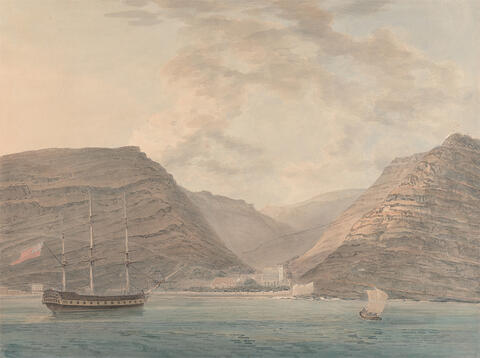Art in Context
Presented by faculty, staff, student guides, and visiting scholars, these gallery talks focus on a particular work of art in the museum’s collections or special exhibitions through an in-depth look at its style, subject matter, technique, or time period.
About this program
The British engagement with India was an intensely visual one. For the artist William Hodges, the visual variety of the subcontinent—as well as the voyage there and back—presented many “valuable subjects for the painter.” In this illustrated talk, John McAleer will draw on the unrivaled riches of the YCBA collection, particularly the watercolors of Samuel Davis, to consider what images produced during the heyday of the East India Company tell us about the link between images and empire, pictures, and power.
About John McAleer
John McAleer is an associate professor of history at the University of Southampton and a current Visiting Scholar at the YCBA. His project employs the rich visual resources and archival material in the YCBA’s collections to extend and enhance our understanding of the role of images and image making, as well as themes of visuality, in representing the voyage to Asia in the age of sail. While historians have long acknowledged the importance of written instructions and textual accounts to the success of the East India Company’s voyages, similar recognition of the value of visual records has been largely absent from the scholarship. Notwithstanding the relative dearth of scholarly attention, however, references to images and image making suffuse travelers’ accounts, while visual and aesthetic responses to their surroundings played a key role in shaping their experiences of the passage to Asia. Lengthy sea voyages—such as those undertaken in East Indiamen—afforded travelers the opportunity to record their impressions extensively, in both textual and visual media. By enhancing our understanding of the voyage experience for travelers, as well as the ways in which they chose to detail it, this research adds salt water to the study of art and travel. In doing so, it illuminates this important but frequently overlooked episode in the histories of the East India Company and the British Empire more generally.
Register
To join us for this program, please register here.
